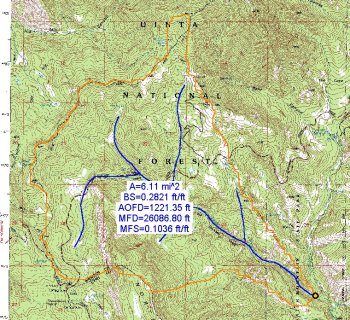WMS:Quick Tour - Travel Time Computations: Difference between revisions
From XMS Wiki
Jump to navigationJump to search
No edit summary |
No edit summary |
||
| Line 2: | Line 2: | ||
With the first method, geometric parameters computed from a TIN or DEM are used in empirical equations developed for either time of concentration or lag time. Each sub-basin can use one equation. Coefficients and parameters used in the equation may be individually edited. All information used in computing the travel time may be saved in a text file or copied to the clipboard for documentation purposes. | With the first method, geometric parameters computed from a TIN or DEM are used in empirical equations developed for either time of concentration or lag time. Each sub-basin can use one equation. Coefficients and parameters used in the equation may be individually edited. All information used in computing the travel time may be saved in a text file or copied to the clipboard for documentation purposes. | ||
[[File:WMS Basin Time Computation.jpg|400 px]][[Image:geomparms.jpg]] | [[File:WMS Basin Time Computation.jpg|400 px]][[Image:geomparms.jpg]] | ||
Revision as of 21:44, 10 March 2016
WMS includes two different methods for computing travel times such as lag time and time of concentration.
With the first method, geometric parameters computed from a TIN or DEM are used in empirical equations developed for either time of concentration or lag time. Each sub-basin can use one equation. Coefficients and parameters used in the equation may be individually edited. All information used in computing the travel time may be saved in a text file or copied to the clipboard for documentation purposes.
File:WMS Basin Time Computation.jpg